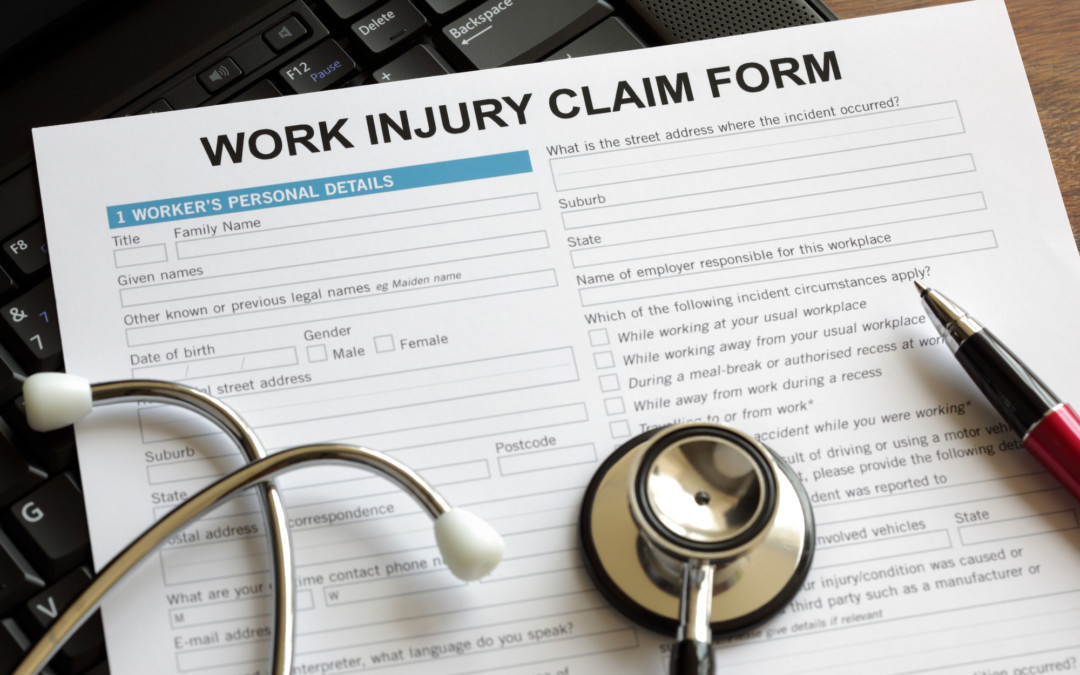What to Do Immediately After a Work Injury? Do These Things And Get The Best Settlement In Your Workers Comp Case
It's scary to find yourself with a workplace injury. Especially if you're not sure what you need to do next.
You're not alone - over 2 million people had workplace injuries in 2016.
Don't get confused, and don't waste time fumbling with what to do. Here are the first steps you should be taking after an injury at work to make sure things work out in your favor.
First Steps After a Work Injury
First things first. You've been injured. What do you do now?
First steps are more obvious than you think. At the top of the list: get medical treatment, and report it to your supervisor.
Medical Treatment
No two ways about it. If you're hurt, get the right medical treatment.
Whether you need to see your company's doctor gets a little messier depending on who you work for and where.
If you're a federal employee, you're covered under the Federal Employees' Compensation Act (FECA). Under FECA, you can choose any qualified doctor to treat you, with some restrictions on chiropractors.
If you're not a federal employee, state laws apply, and those vary by state. In some states, you can see a doctor of your choice if you make a written request to do so before the work injury occurs. Usually, though, employees are referred to a doctor paid by their employer.
Important Point
It is very, very hard to find a lawyer who will handle Federal Workers Comp. I do not know of any in my area, and my office does not do Federal Workers Comp for Federal government employees hurt on the job. We DO handle Workers Comp cases in the State of Illinois.
That doctor's report will have a major impact on the benefits you receive - and keep in mind that a company doctor is paid by your employer, and is more likely to minimize an injury.
Report the Work Injury to Your Supervisor
Notify your employer as soon as the incident occurs.
You can't skip this step, just like you can't skip going to the doctor. If you don't do both of these things within the first thirty days of a work injury, you may lose your right to workers' compensation benefits.
What Happens Now?
You've been to the doctor, and you've reported the incident to your supervisor.
What happens now?
This is when the legal side of things starts to come into play. Once you've taken the necessary first steps, you need to file a report, get familiar with your workers' compensation laws and have a lawyer look at your case.
Let's break it down.
File an Incident Report
Before you get overexcited, let's be crystal clear here: filing an incident report for a work injury isn't the same thing as filing a lawsuit against your employer.
Actually, it's pretty similar to filing any other claim with your insurance company.
This is why the first step in this process is to notify your employer. Regardless of how your employer learns of the incident, they're obligated to offer you a claim form immediately.
And unless that form is completed, they're under no obligation whatsoever to offer you benefits.
This shouldn't be a difficult process - in most states, employers, hospitals and doctors' offices are required to keep these forms on hand to get the process started.
If they don't have the forms, you need to get in touch with your state's Workers' Compensation Office. You can find yours here.
Check Your Workers Comp Laws
Get mighty familiar with your workers' comp laws.
Barring a few exceptions, employers are legally obligated to acquire workers' compensation insurance. Essentially, under workers' compensation laws, employees can't sue their employers for a work injury, but they also don't have to prove their employer's negligence caused the injury.
In fact, you can even be covered if your negligence caused the injury. With a few exceptions of course, like intoxication or the use of illegal drugs at the time of the incident.
If your employer claims not to have this insurance, you should definitely get in touch with a lawyer, because that means you can sue.
Find a Personal Injury Lawyer
Hire a lawyer, whether your employer has workers' comp insurance or not.
Regardless of your relationship with your employer, the truth is, cases like this can get exhausting, confusing and frustrating. It helps to have someone in your corner who knows the law and knows how to advocate on your behalf to make sure you get the benefits you're entitled to.
Or, if you're just not sure what direction to go after getting injured, getting an informed second opinion is always helpful.
Here are our top tips for hiring a personal injury lawyer.
During and After the Legal Process
If you've made it this far, take a deep breath. Get settled. And keep your cool.
You should be following your doctor's instructions to make a full recovery, getting a second opinion if you need one, attend hearings as you're required to do so, and getting back to work as soon as you can.
Give Your Lawyer all the Details
Throughout the entire process, remember: your lawyer can't help you if they don't have the complete story.
They're the informed third party and it's their job to give you informed legal advice on how to proceed. If you leave things out, they're not operating on the whole picture, which makes it hard to give accurate advice.
If You're Unhappy with How the Claim is Resolved
As usual, it varies based on whether you're a federal or non-federal employee.
If you're a federal employee and you disagree with the handling of a claim, you can request an oral hearing or a review of the written record from the Branch of Hearings and Review.
If you're not a federal employee, state laws take effect here. Ask your lawyer how best to proceed, but most state laws follow a similar appeals process.
It is very hard to find a lawyer for Federal Workers Comp. Most lawyers only handle State Workers Comp Cases.
Know Your Rights With The Law Office of Scott D. DeSalvo
Taking the right steps after a work injury can make a major difference in the outcome of your case. At The Law Office of Scott D. DeSalvo, we help injured workers take action, understand their legal rights, and navigate the workers' compensation process with confidence. We also represent clients in personal injury, slip and fall, and nursing home abuse cases—always with a focus on protecting what matters most.
If you’ve been injured at work, contact us today to get clear, experienced legal guidance.




